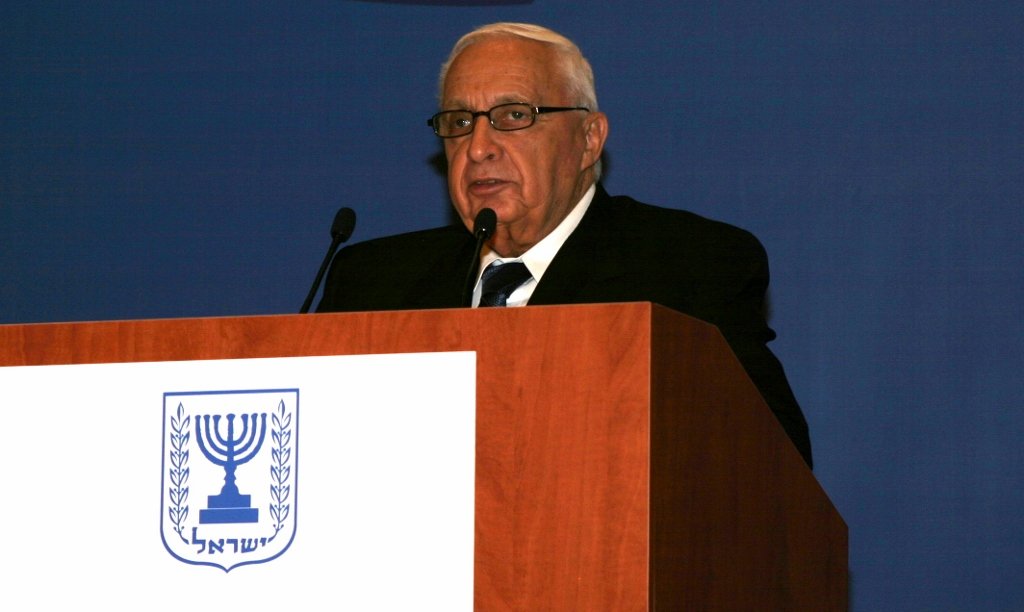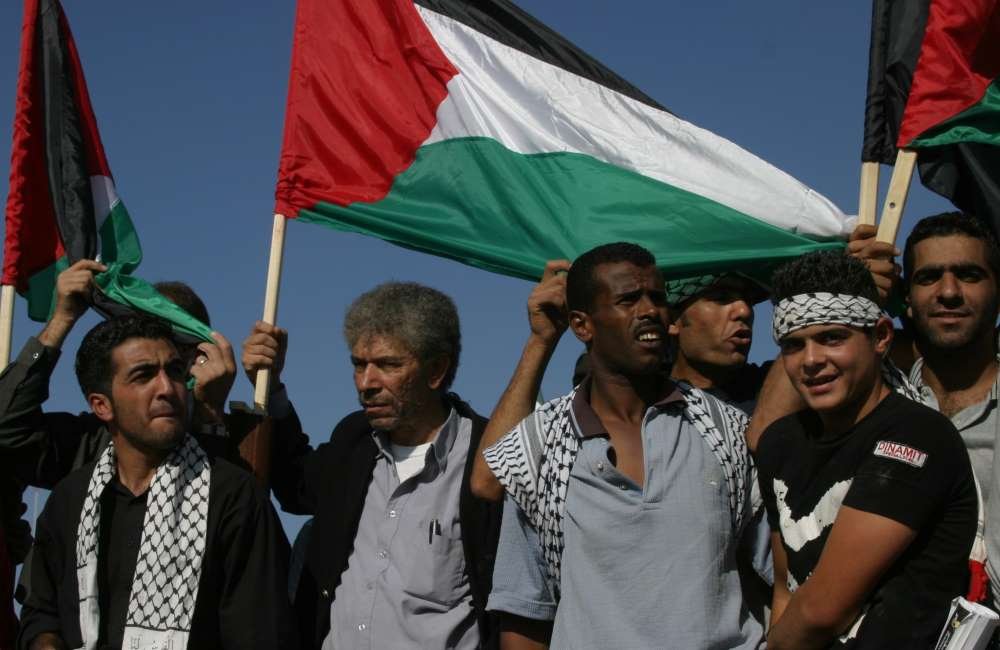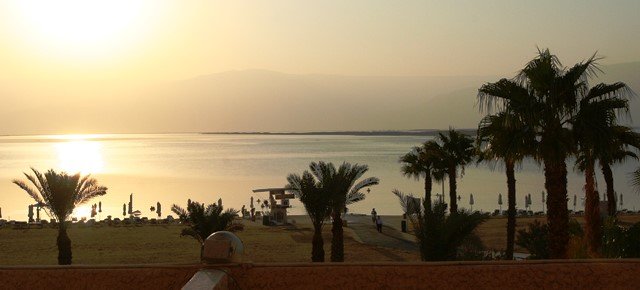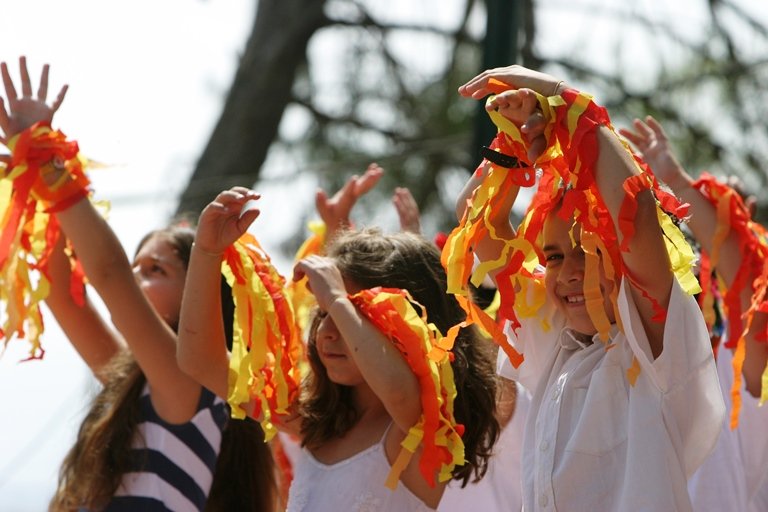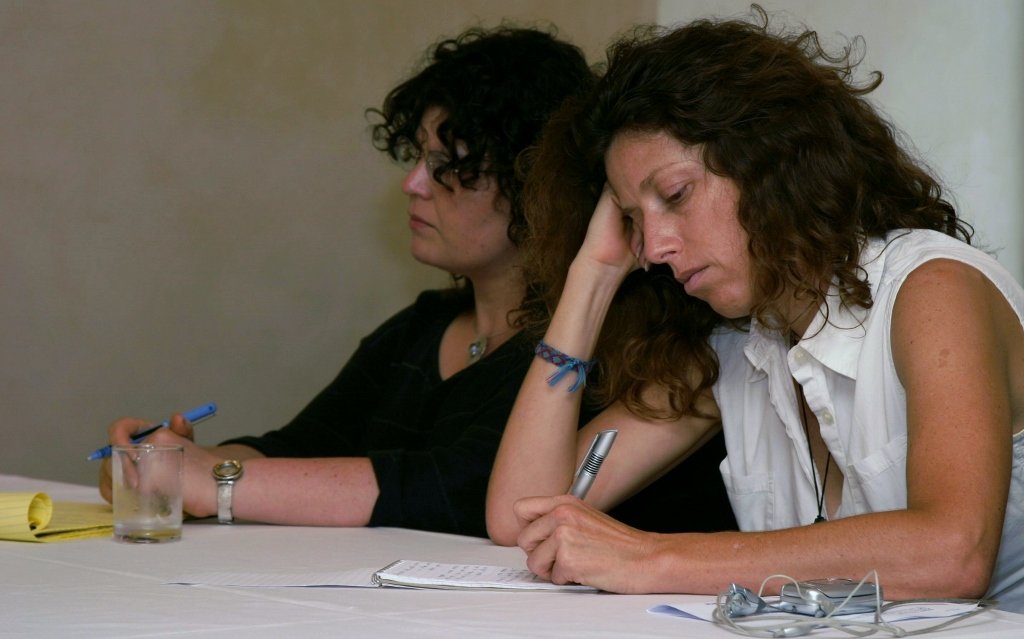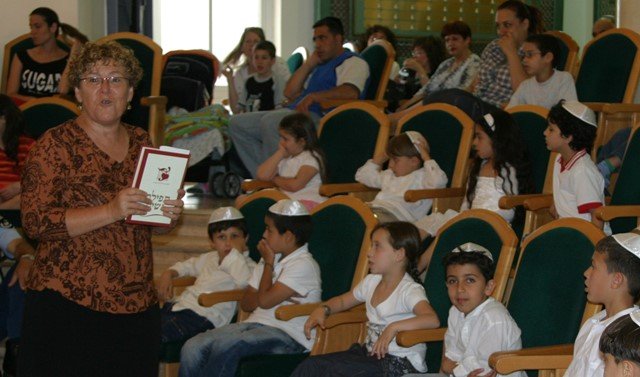Share This Story, Choose Your Platform!
Attempt to Clear a Path of Understanding
Since its foundation the State of Israel has been under the special general suspicion that the separation of (secular) state and religion does not really work out.
Israelis, a “religious” people?
The reason for this cannot be that the population of the State of Israel is particularly religious. According to a Gallup poll in spring 2015, Thailand is the most religious country in the world and China the least religious state.
In the same survey, 65 percent of the Israelis described themselves as either “non-religious” or “convinced atheists”. 30 percent of Israelis considered themselves “religious”. From the perspective of this survey, Israel thus ranks somewhere in the middle between Thailand and China.
Also, the major problems in the relationship between state and religion in everyday life are often least to be found where critics of Israel suspect them. Thus “the ultra-orthodox” are usually not “the radicals” in their relationship with the Arabs or in land issues. On the contrary, the ultra-Orthodox Jewish community is often rather critical of the state, especially when it comes to nationalist ideas.
Religious symbols in the state
Israel is in many ways far more secular than most European countries. Correct is: Its emblem shows the seven-armed lampstand and the two olive branches from the prophet Zechariah (4:2-3). In front of the Knesset, the Israeli parliament in Jerusalem stands a menorah on which the words are written: “Not by army nor by power, but by my Spirit, says the Lord of hosts” (Zechariah 4:6).
So it is quite possible that a politician who has no idea at all about the Bible, surrounded by biblical-apocalyptic signs, makes statements that in this context seem highly relevant to the informed person.
And then the flag of Israel bears the colors and stripes of the Jewish prayer shawl, with a Star of David in the middle. But the Star of David is not a religious sign. Originally it was not even a Jewish sign. According to Gershom Scholem, this symbol was “sanctified” only by the suffering and horrors of the Holocaust.
Furthermore, the flags of many countries bear religious symbols. This applies not only to the crescent of Islam. The cross belongs inseparably and meaningfully to the national flags of Switzerland, Great Britain and the Scandinavian countries, to name but a few examples.
Public holidays and church taxes
Israel also has no special, state-defined holidays on which it would be forbidden to “work” or drive trucks above a certain size, as is the case in some EU countries.
Unlike the Federal Republic of Germany, there are no taxes in the State of Israel that would be collected by the state on behalf of any religious communities. Perhaps the reason why financial contributions of the state are so loudly discussed in Israel is precisely because the religious have to “pay” for it in everyday life with democratically won power.
Similar to the Federal Republic of Germany, the State of Israel has no constitution that would define a separation of religion and state as a legal basis.
Israel as a “Jewish State”
Although neither the Federal Republic of Germany nor Israel define themselves as immigration countries, both countries grant certain people a right to immigration based on their origin.
There is, however, a serious difference, because the “German origin” is completely independent of whether a person professes to be a Christian, Muslim, Jew or atheist.
Israel’s secular Supreme Court, which in some places is even accused of being “anti-religious”, on the other hand decided that a “Jew” today cannot at the same time be “Christian” or “Muslim”. Even though according to “Halakhah”, the Jewish religious law, it is not at all possible to get rid of one’s Jewishness, not even by conversion to another religion.
The question of Jewish identity
Ever since Jews have existed, there has been the question: Is being Jewish a religion or a nationality? Are the Jews a people or a religious community? Since in Judaism much more emphasis is laid on preserving commandments than, as for instance in Christianity, on a theoretical-theological faith, one may certainly reach the conclusion only he is a Jew who obeys the commandments. By the way, this thinking has its origin in the Torah, where it is repeatedly emphasized that anyone who disregards certain orders will be “exterminated” from his people (see for example Leviticus 17:10; 20:3,5,6; Joshua 24:20)
In the course of two and a half millennia of diaspora, it was not infrequently the religious identity that connected the people of the Jews across all countries, cultures and languages, also from a secular perspective.
The Shabbat
A good example is the Shabbat, the seventh day of the week, the biblical day of rest. On the one hand it is a biblical commandment, an order of creation. Today, however, it is above all an integral part of how Jews see themselves. Asher Ginsberg, the secular Jewish thinker known as “Ahad Ha’Am,” stated, “More than Jews kept the Sabbath, the Sabbath kept the Jewish people.”
In fact, keeping Shabbat is one of the factors that has enabled the Jewish people to maintain a common identity for thousands of years, when they were scattered around the world. Today nowhere in the world, even as a Gentile, the Shabbat may be “tasted” as in Israel.
Only the nationalist ideology of the 19th and 20th centuries and then the return to the land of the fathers and the emergence of an Israeli identity allowed Jews to be “Jews” even as total atheists. The Western understanding of a state that is strictly separated from religion and committed to humanism is also a relatively recent development in Europe, which has its roots in the Renaissance and Enlightenment.
Large parts of Judaism and above all of Islam, however, have never experienced an Enlightenment in the sense of European intellectual history. In societies that are not committed to the European philosophy of an Enlightenment moulded by humanism, however, the separation of state and “church” is by no means self-evident. This is true not only in Islamic countries, but can also be observed in countries where the Orthodox Church is dominant, such as in Russia.
The tension between West and East
Although Israel would like to see itself “western”, it is in many respects socially closer to Arab and Muslim societies than to most European states.
A real challenge for a democracy that is founded on secular humanism arises when the majority of the population feels less committed to secular humanism than to traditional religious values. The main problem is that in a democracy the people are basically the sovereign and decide by a majority of votes.
Recently, state and society in Israel have been increasingly exposed to such a conflict when the liberal-humanistically dominated Supreme Court increasingly became the antithesis of a traditionally oriented public.
Who is allowed to immigrate?
The challenge of clearly identifying Jewish identity has not even been solved by the Israeli legal system. As a matter of fact, people who are “Jews” according to the “halakhic”[1] definition find themselves actually as focus of a campaign to persuade people to immigrate to Israel, whereas people who are considered “Jews” according to the rather “racist” definition of the Nuremberg Laws of September 1935 have to fight for their right to naturalization legally.
This obvious contradiction in Israeli jurisprudence arose from the fact that the founding fathers of the modern state of Israel did not want to adhere to the definition of the Halakhah, but wished to give refuge to all people who had been persecuted as “Jews” by the German Nazis.
Population and Religion in Israel
Understanding “religion in Israel” is difficult, to present it to an outsider in an understandable way, a near impossibility. One reason for this is that up-to-date and reliable figures are difficult to obtain. The population of the Jewish state increased tenfold between 1948 and 2013, mainly due to various waves of immigration. It should be noted that with each wave of immigration new religious components have found their way into Israeli society. And then Israel, with 2.6 births per woman in 2020, has the highest fertility rate among the industrial nations.
Of nine million Israelis, 6.7 million (74.1%) are Jews, 1.9 million (21.0%) are Arabs and half a million (4.9%) are “others”. Of the Arabs, 1.6 million (17.8%) are Muslims and 177,000 (2%) Christians.
The overwhelming majority of Israeli Muslims are Sunnis, including Bedouins, Circassians, Kurds, Roma and people of Turkish origin. Then there are Ahmadiye, Shi’ites and Alawites in Israel.
Among Israeli Christians, who make up about two percent of the total population, the Melkite (Greek Catholic) Church represents the largest group, followed by the Greek Orthodox Church (together more than 70%). There are also Latin (Roman Catholic), Russian Orthodox, Aramaic, Maronite, Syrian, Armenian, Assyrian and Coptic Christians in Israel, as well as a number of small Protestant groups, including Anglicans, Baptists, Lutherans, Pentecostals and Brethren.
Among the “other Israelis” there are not only many immigrants from the former Soviet Union, who are not recognized as Jews by the “Halakhah”, but also 143,000 Druze, 26,000 Buddhists, 5,000 “African Hebrews” or “black Israelites” and 820 Samaritans. The Bahai religion has its world centre in Israel. But there is no Israeli Baha’i community, only about 750 Bahais who live in Israel as volunteers for a limited time.
The status quo agreement
In principle, the State of Israel follows the procedures and practices of the Ottoman (1516-1917) and British (1917-1948) periods in its relationship with non-Jewish religious communities from a legal perspective, with some important modifications. This legal basis is known as the “status quo”.
Israeli law officially recognizes five religions: Judaism, Christianity, Islam, Druze and the Bahai religion. Under the umbrella of Christianity, ten denominations are formally recognized: The Roman/Latin, Armenian, Maronite, Greek/Melkite, Syrian and Chaldean Catholic Churches, the Eastern Orthodox/Greek Orthodox Church, the Oriental Orthodox/Syrian Orthodox Church, the Armenian Apostolic Church and the Anglican Church. These churches enjoy a certain independence from the state and autonomy rights, including marriage and divorce.
Civil marriage and school system
There is no civil marriage in the state of Israel. Therefore, many Israelis marry abroad if they do not fit into any of the categories defined by the state or if the desired marriage crosses social and religious boundaries.
The Ministry of Education manages a secular and orthodox school system in the state, but apart from a common core curriculum it allows great freedom to different faith and confessional groups.
Religiously divided Jewish society in Israel
The overwhelming majority of the population in Israel is “Jewish”. However, this designation underlines everything but homogeneity. Non-Orthodox Jewish movements, such as Conservative or Reform Judaism, are only recognized to a limited extent in Israel.
In 2016, the Pew Research Center presented its study on Israel’s religiously divided society. However, it is difficult to draw conclusions from such surveys, because it is always necessary to look closely at who asked what question to whom in what context. Moreover, it is difficult to make an international comparison without precise knowledge.
To give just one example: If an “atheist” in France or the Czech Republic hardly knows what the term “God” means, and an “atheist” in Germany doubts the credibility of the Bible without ever having held it in his hands, an “atheist” in Israel will defend himself in the language of the prophets with biblical arguments as to why he rightly expects to be left alone by a God who in his view should actually not exist at all.
Frustration of the Seculars
Secular Israeli Jews regard themselves as non-religious. They see Israel as a modern, democratic country that should not dictate any religious traditions to its citizens. They complain about having to submit to kashrut laws “which only raise the cost of living and make them hostages of corrupt kashrut overseers.” The fact is, however, that you may find shops everywhere in Israel that cater to the tastes of Russian Jews in particular, who have no religious background whatsoever.
Added to this is the fact that “normal” Israelis usually do not care at all what is going on in ultra-Orthodox society. There is public debate about the fact that most ultra-orthodox young men do not serve in the army. But as much as secularists publicly boast that they bear the main burden of the state, so little does the army suddenly want to be overrun by ultraorthodox.
What do the Ultras want?
Orthodox Israeli Jews fear that the separation between state and religion may ultimately lead to Israel losing its Jewish identity. But what do they want beyond that? Do they really want, as many secularists fear, to impose the rules of Halakhah on everyone? Or are they aware that despite their high birth rate they will always remain a minority in the Jewish state?
As a matter of fact, even within the ultra-Orthodox community the political commitment of the ultra-Orthodox in the Zionist state is hotly disputed. Since 1977, when the Likud party came to power, which is in coalition with the growing ultra-Orthodox parties, their power has steadily increased.
However, those ultra-Orthodox who are actually actively involved in Israel’s political landscape do not appear to be up to the task of making the state ultra-Orthodox. Rather, from the very outset they seem to be interested only in obtaining autonomy within the secular state, which follows its own rules and rights and can be influenced from outside as little as possible. The political activities of the ultra-Orthodox consequently were primarily aimed at ensuring that this autonomy also received a budget in the state.
[1] “Halakhah” is the Jewish religious law.


